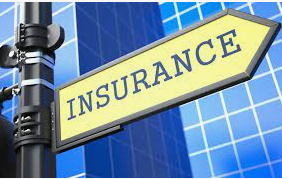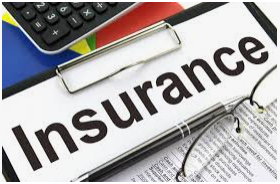What is Insurance? Definitions, Types and Inportance of Insurance
What is Insurance?
Insurance is a way to manage your risk. When buying it, you need to buy protection against unexpected financial losses. If something serious happens, you or someone of your choice will be reimbursed by the insurance company. If you have an uninsured accident, you may have to pay all costs. The right emergency can make a huge difference in your life.
People buy insurance not only to cover the risk of unforeseen events but also to pay for common things like annual medical checkups and dental visits. In addition, the insurer negotiates the cover with the healthcare provider whose client pays the reduced amount. Insurance is a written agreement between an insurance company (owner or company) and an insured (insured).

No insurance is needed. A person or entity may take out insurance (become an insurance company) that protects another person or entity (i.e. the insured). For example, a company buys insurance for an employee, where the employee is insured and the company is insured.
Also Read:
- What is Car Insurance? The Best Car Insurance in Australia
- What do you meant by Boat Insurance? An Overview
How does an Insurance Policy Work?
Insurance is usually done for a certain period of time. This is called a policy condition. At the end of this period, you must renew your policy or purchase a new one. With some insurance policies, you must choose a beneficiary. The person you want the benefits or benefits of the policy.
When You Buy Insurance Part of your responsibility is to pay a fee known as a premium, some premiums are paid monthly, such as health insurance. Your premium usually depends on the risk you run with the insurance company.

In addition to the insurance premiums, most insurance policies also include tax deductions. This is the amount you have to pay in advance. For example, if you have $500 deductible home insurance and $3,000 in hurricane damage, you’ll pay $500 and the insurance company will pay $2,500 with certain policies. You can choose anyone like higher deductible means that lower premium.
Insurance Planning
Some of us may think we have enough money to replace our possessions if something happens to them. The problem, however, is that in most cases, the cost of an accident, disability, or death of a loved one can exceed your savings or accumulated assets. For this reason, insurance is an important part of financial planning.
Some of us may think we have enough money to replace our possessions if something happens to them. The problem, however, is that in most cases, the cost of an accident, disability, or death of a loved one can exceed your savings or accumulated assets. For this reason, insurance is an important part of financial planning. In the long run, buying insurance makes more sense than using your hard-earned savings to cover property damage or loss, especially if it’s expensive.
Why Should I Purchase Insurance?
Insurance can protect you from financial loss in the event of unforeseen circumstances. Accidents and disasters can happen, and without good insurance, you can lose money. When you buy insurance, the insurer hands over to the insurer the amount of money you will lose, in exchange for an investment in the trust, which can be used to pay if the policyholder the body for the cover grew. Whether you get coverage or not, depends on your stage of life and your circumstances. Examples of coverage include:
Car Insurance: Insurance that covers the cost of repairing your car in the event of an accident or theft. It also protects against damage to others.
Life Insurance: Pays your family when you die. Property Damage Insurance: Covers the cost of repairs in case of fire or damage, as specified in the policy. You can do Insurance for both residential and commercial properties.
Types of Insurance
Insurance can be divided into traditional insurance and takaful, also known as Islamic insurance. Takaful is a form of Islamic insurance developed according to Sharia. Both traditional and takaful offer similar types of insurance and products. The most popular types of insurance offered are:
Motor Insurance
There are two main types of auto/motorcycle insurance.
Third Party Liability: Third-party liability insurance protects policyholders from liability to third parties in the event of an accident, such as property damage, personal injury, or death. Third-party liability insurance is mandatory for all car owners in Pakistan.
Comprehensive: This is the most comprehensive coverage. Insurance rates depend on many factors and can include:
- Car make and year
- Purpose of vehicle use, privacy or work
- Where vehicles are used, trackers are installed
- You can reduce your risk by increasing your deductible and taking more risks. This means that your personal insurance grows with your deductible.
Life Insurance
Life insurance is intended to protect you against financial loss due to death. The benefits are known as income benefits and are protected from the financial consequences of the death of the insured. Life insurers pay the death benefit by paying the insured interest.
Life insurance offers protection and savings, and the percentage of these features in insurance products can vary depending on the type of product and customer needs and preferences. Insurance products can have different coverage and savings percentages that a policyholder can choose from a life insurance product.
Policyholder’s Duties and Rights
As an owner, you have certain responsibilities and rights, including:
- Liability of the policyholder
- Provide all necessary information honestly.
- Do not make false statements or false information.
- Complete the proposal and name the beneficiary.
- When applying for insurance, be sure to fill out all the required forms.
- Submit claims and track claims in accordance with policy terms. When
- Complete all document requirements to submit your claim.
How to make a claim?
A claim is a notice to the insurer that a payment has been made for compensation due under an insurance policy. This is the right of the insured. If the insured dies, the parents can receive the cover as agreed when the policy was taken out of the company has guidelines to follow when filing a complaint.
Here are some key points to consider:
When buying an insurance policy, the policyholder must get a damage report from his insurance company.
- If the entitled party or another entitled party dies, the entitled party must report.
- If there is no damage, the insurance company must notify the department immediately after the insured damage occurs. In the event of the death of the insured, the insurance company must declare the payment.
- If the policy provides liability coverage, the insured must pay the liability within that period.
- However, it may be in the insurer’s interest to file a complaint with the insurer as soon as possible.
- If the insurance specifically requires this, the insurer must indicate this in writing.
- Insurance companies require several documents related to claims to process. The insurer is responsible for providing all written documents requested by the insurer.